Shower Pump Buying Guide
If you've ever stepped into a shower expecting a powerful stream of water only to be met with a disappointing dribble, you'll know the importance of a good shower pump. This Shower Pump Buyers' Guide is packed with all the information you'll need to choose the perfect shower pump for your home.
Definitions
What Is A Shower Pump?
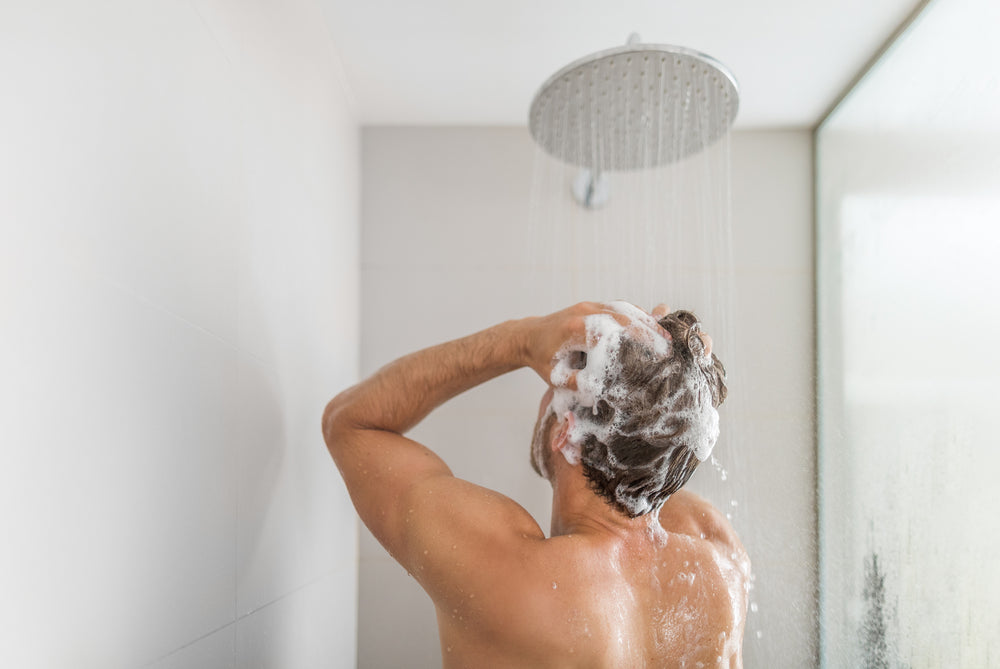
A shower pump is appliance that you can add to your plumbing system which increases the water pressure inside your home. The aim being to improve the availability and strength of water coming out of your showers, taps or other outlets.
Shower pumps can be fitted anywhere from the mains inlet, all the way to single, isolated, outlets. In this way, they can boost the water pressure for your entire home right the way down to just one tap.
Water Flow vs Water Pressure
A quick note on terminology; while Water Pressure and Water Flow are related, they are different. Water Flow refers to the volume of water coming passing through your outlet, while Water Pressure describes the force with which the water comes out.
Why Do You Need A Shower Pump?
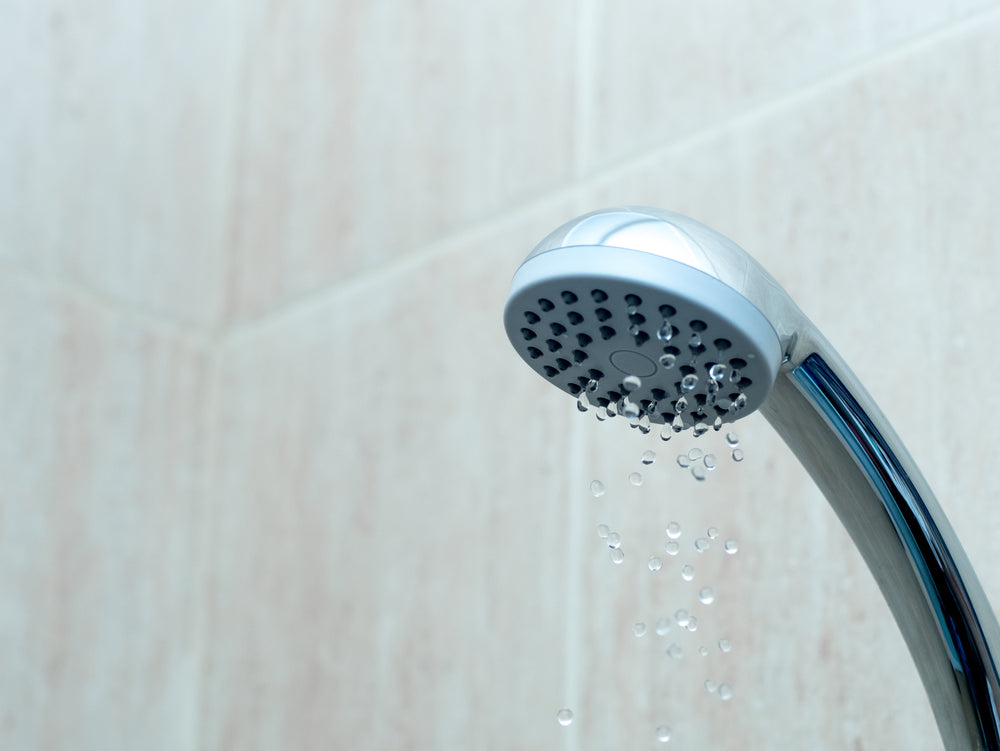
Whilst not always the case, if you're having a poor shower experience, a shower pump is more than likely to be the answer to your problems. By increasing the flow of water to your shower, a shower pump can fix a few really common issues. We'll cover these in more detail now:
You Need To Improve Your Water Pressure
Low water pressure is really frustrating in any home. What this usually looks like is a dribble of water out flowing out of your tap or shower head. Not enough to flow to wash soap suds out of your hair and certainly not enough to enjoy being in the shower.
In this situation, installing a shower pump or a mains boosting solution will instantly transform how you experience water pressure in your home and will certainly make showering a much more enjoyable part of your day.
You Want to Stop Temperature Fluctuations
An unbalanced flow, or poor flow on one feed and a strong feed on the other, can result in an unstable temperature in your shower. You often experience this when you shower turns cold unexpectantly. Alternatively, if your shower turns scalding hot when someone uses a tap or toilet elsewhere, this is another tell-tale sign of an unbalanced supply.
Using a shower pump on both your hot and cold feed is an excellent fix for this problem.
You Have Insufficient Flow to Start Your Electric Shower
All Electric Showers have a defined minimum flow rate. If you can't reach this flow rate, the electric shower will shut off. So, if someone uses a tap or toilet elsewhere, reducing the water pressure to your shower, you may find yourself cold and covered in soap.
In this case, a shower pump can help you maintain the minimum flow rate of your Electric Shower, ensuring it doesn't shut off.
You Have One Outlet With Low Water Flow
Sometimes you have one tap, or a shower on the other side of the house that can't quite reach the pressure you need. Using a shower pump is a common fix for this issue.
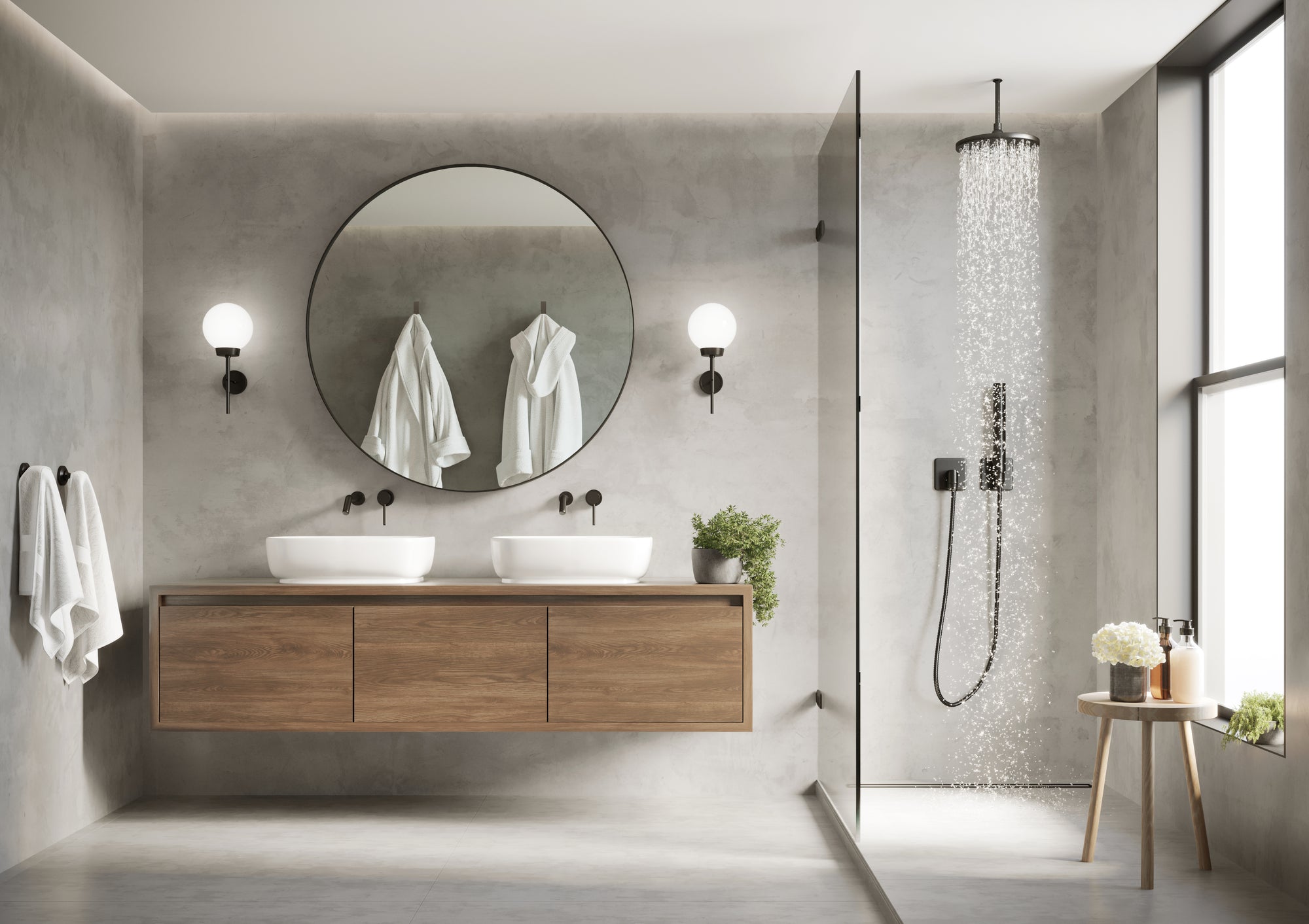
Which Shower Pump Do I Need?
Buying a shower pump is complicated, but we want to make it as easy as possible for you. Contact us today for help. Or if you want more detail about the different types of shower pumps available, keep reading.
Choosing Your Shower Pump
1 - What Is Your Heating System?
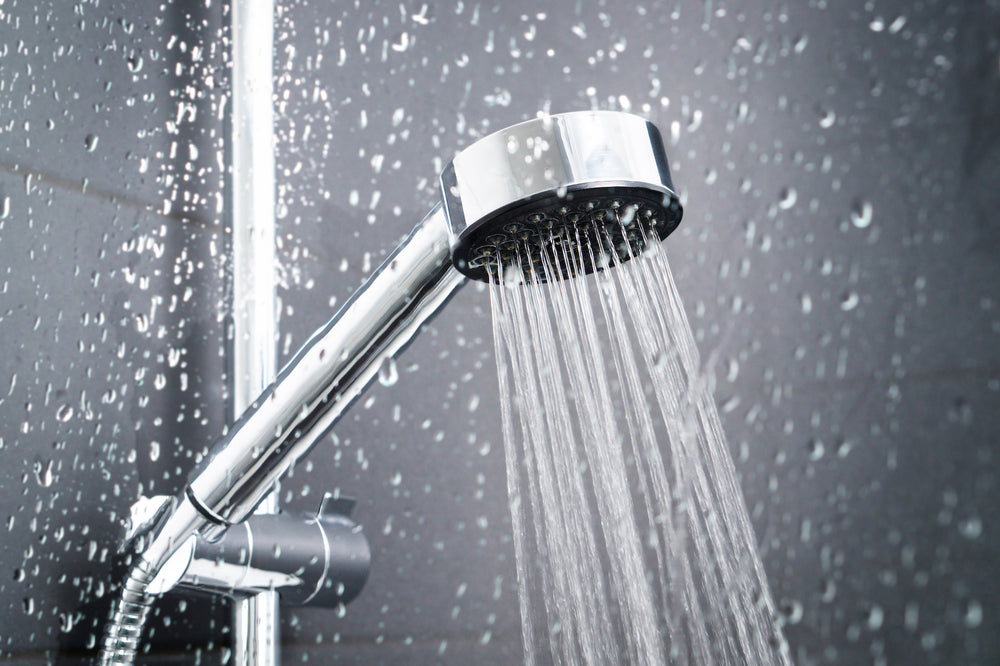
Understanding your heating system is a great first step. There are typically three different heating setups in the UK; Gravity Systems, Combi-Boiler Systems and Unvented Tank Systems.
In most situations, a shower pump is best suited for Gravity Fed Systems.
Gravity Systems
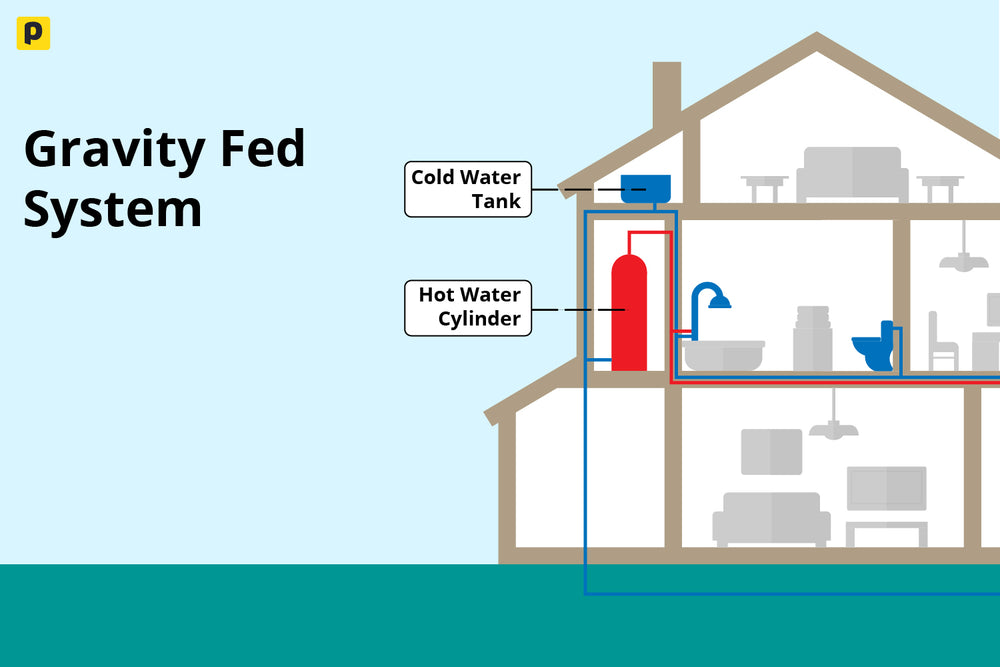
Gravity systems are typical of the old housing stock of the UK. This system will have a hot water cylinder somewhere in your home, which means you have a Gravity Hot system. You may also have a cold water tank in your loft. In this case you have Gravity Hot and Cold system.
This system works by relying on the power of gravity to give you a good flow rate. The problem is, this often isn't the case and they are renowned for poor water pressure. Shower Pumps are a popular solution to improving flow in this type of system.
Combination Boiler Systems
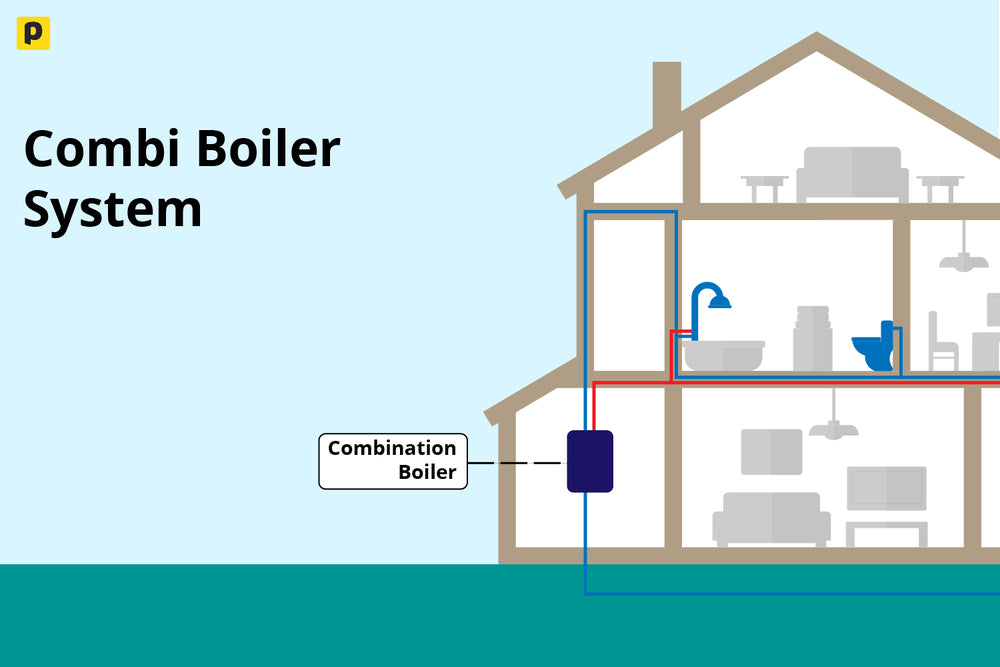
Combi boilers are a very popular choice in the UK. These highly-efficient wall-mounted units save space by eliminating the need for a separate water tank. They draw cold water directly from the mains and provide instant hot water to your taps and showers and also powering your central heating. This makes them ideal for smaller homes where space is limited.
Unvented Tank Systems
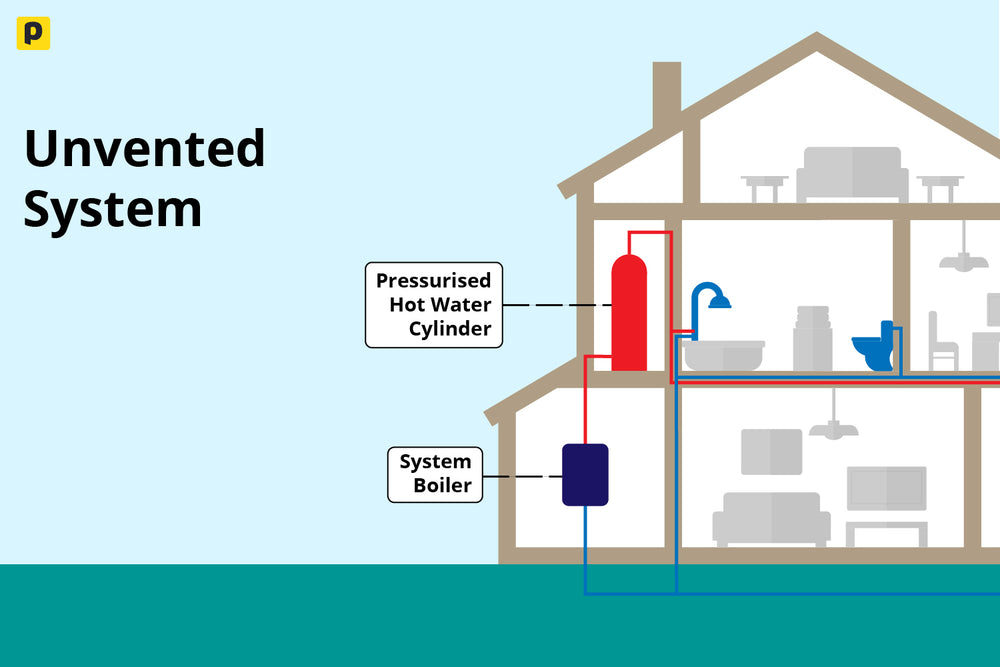
An unvented tank stores hot water at mains pressure ready for when you need it. They can typically support more hot water outlets than a combi boiler and so are more popular in bigger houses with more bathrooms.
You shouldn't need a pump with an unvented cylinder set-up as everything is at mains pressure. In fact, it is illegal to add a pump after the unvented cylinder. If you are suffering from bad flow rates with this system, you should call a professional.
2 - Do You Need a Negative or Positive Head Pump?
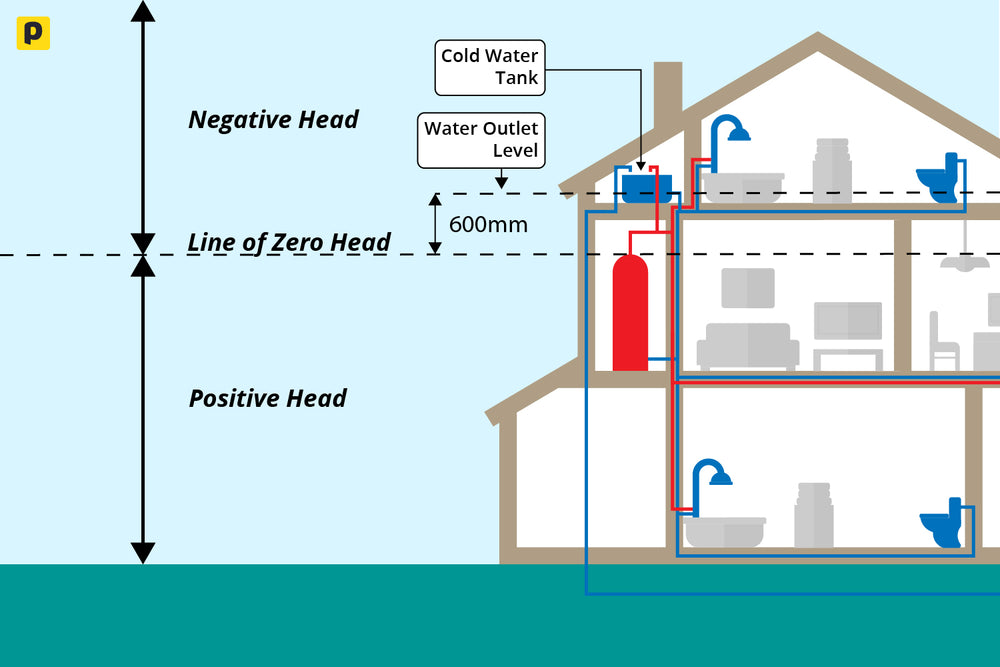
Take a second to understand this diagram. Deciding if you need a positive or negative head pump is one of the more important factors to understand. Mostly, because a standard (positive head pump) won't work in a negative head situation.
Learn more about negative head or positive head hereThe Quick Way To Understand if You’re in Negative Head
Most pump manufacturers agree that if your flow rate is less that 2 litres/minute, you're in a negative head condition. In which case you will need a universal or negative head pump.
Negative Head Pumps
Negative head pumps are designed to be used when an outlet that you want to improve the flow to is in negative head. They need to be powerful enough to increase the pressure head for your outlet.
Positive Head Pumps
Positive head pumps are designed to be used where in positive head situations where there is an existing flow rate. These pumps will be triggered by your existing low flow rate and will boost it to the maximum flow rate of your chosen shower pump.
Universal Pumps
You may have heard the term "Universal Pumps" along the way. These the same as Negative Head Pumps. Negative Head Pumps are sometimes called Universal Pumps because they can be used in both positive and negative head situations.
3 - Do You Need a Single or Twin Impeller Pump?
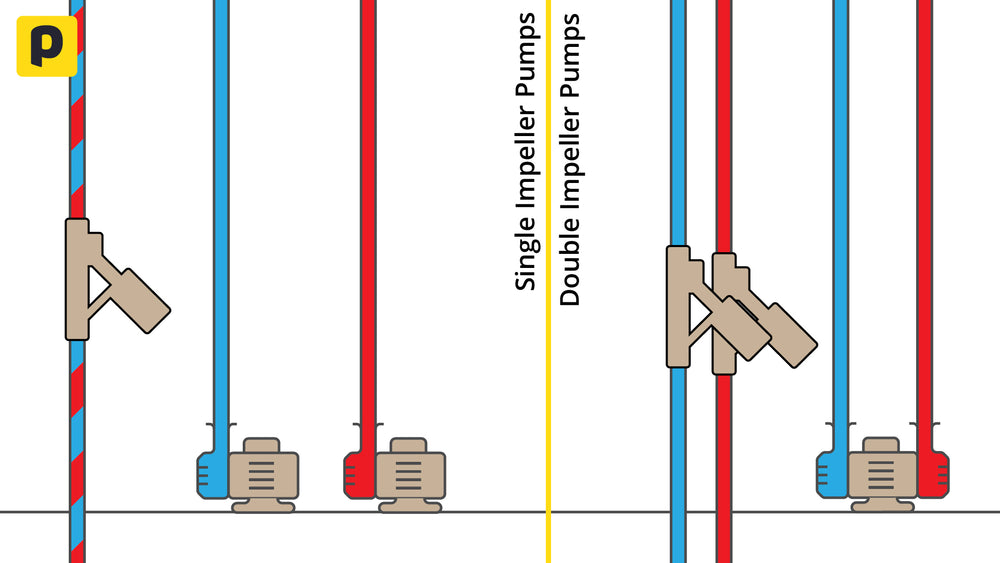
Depending on whether you need to boost one feed, or both your hot and cold feeds, will determine whether you need a single or twin impeller pump.
Single Impeller Pump Use Cases
If you only need to boost one feed (hot or cold), a single impeller pump will be sufficient.
Typically these pumps are used when there is a household with a Gravity Hot system, i.e. Gravity Hot and Mains Cold. By boosting the hot feed, you can balance the pressure from the Mains Cold Feed.
Twin Impeller Pump Use Cases
If you want to boost your hot and cold feeds at the same time, you will need a twin impeller pump.
Typically this type of pump is used on a Gravity Hot and Gravity Cold system, but in any case, this pump will result in a balanced feed to your shower fixing low water flow and temperature fluctuations.
Electric Showers
Electric Showers heat mains cold water in the shower unit to the temperature you have specified. The problems arise when the incoming water pressure is too low and you find your Electric Shower shutting off.
For Electric Showers you will need a Single Impeller Pump as you are only boosting one feed.
Manual Mixer Showers
Manual Mixer Showers mix hot and cold water at the shower valve according to how you have adjusted the valve handle. So for a Manual Mixer Shower you will need a Twin Impeller Pump in order to support a powerful and balanced flow.
Thermostatic Mixer Showers
Thermostatic Mixer Showers automatically mix hot and cold water at the shower valve according to the the value you have chosen on the scale. So for a Thermostatic Mixer Shower you will need a Twin Impeller Pump in order to support a powerful and balanced flow.
4 - What Size Pump Do You Need?
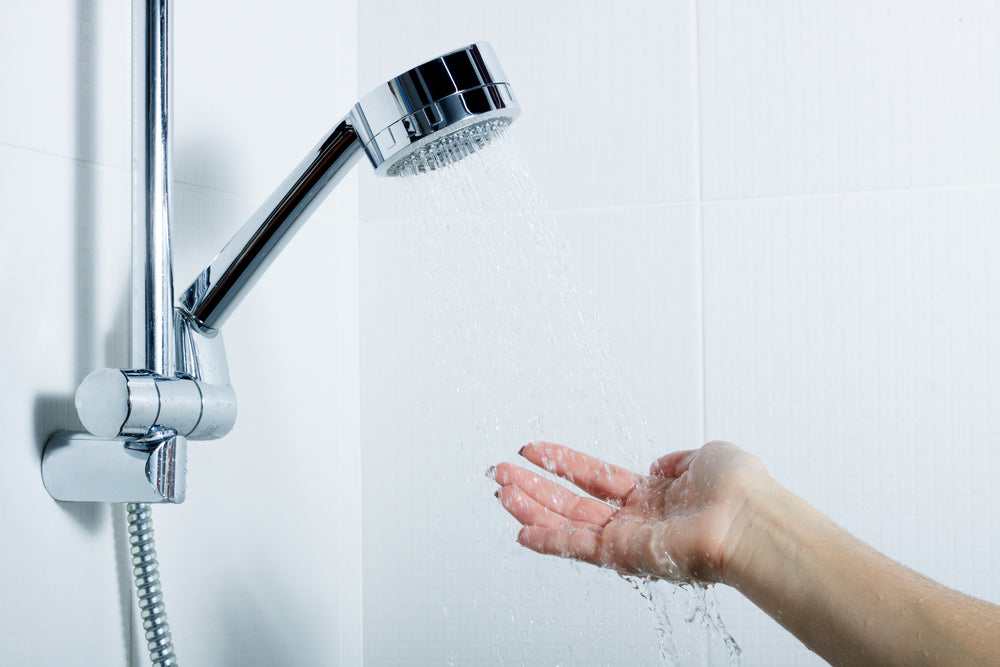
The final most important decision in the chain is the size of pump you need. Are you boosting a whole home? Are you just boosting one isolated shower? We'll help you figure this out:
-
Boosting an Electric Shower
Electric Showers typically need a minimum pressure of 1 Bar to operate, so a 1.5 Bar Shower Pump will be sufficient.
-
Boosting A Small Flat or Small Shower Head
In this case you need a 1.5 to 2 Bar Shower Pump.
-
Boosting a Small House or Large Shower Head
In this case a 2.0 to 3.0 Bar Shower Pump will be sufficient.
-
Boosting a 3 Bedroom Home
A 3.0 Bar Shower Pump will be sufficient for this.
-
Large Homes and Multiple Bathrooms
A 3.6 Bar Shower Pump or above is sufficient for this.
Be Mindful of Your Hot Water Capacity
You will need to consider the capacity of your hot water supply. For example, if you have a small hot water cylinder and you're thinking about a pump that’s 3.0 bar or above, you will likely find that your hot water will run out very quickly.
Other Considerations
The four main considerations when choosing a shower pumps are; understanding your heating system, choosing between a positive and negative pump, whether you need a single or double impeller pump and then what size you need. After that, there are just a few loose ends to tie up:
Hot Water Capacity
You will need to consider the capacity of your hot water supply. For example, if you have a small hot water cylinder and you're thinking about a pump that’s 3.0 bar or above, you will likely find that your hot water will run out very quickly.
Centrifugal or Regenerative Shower Pump?
This isn't critical, but centrifugal pumps use centrifugal force to push the water out. Regenerative pumps use impellers to increase the flow rate. Centrifugal pumps can be quieter, but regenerative pumps are better at preventing air pockets forming.
Noise Levels
Pumps are inherently noisy and they can also throw out a lot of vibrations. In fact you can buy rubber mats to absorb these vibrations. Overall, you should be mindful of the dB rating when you choose your pump and consider where it will be placed and how you can insulate yourself from the noise.
Build Quality & Efficiency
We say it a lot here at PlumbHQ, but we firmly believe that quality is king. Look out for reputable manufacturers when you are selecting your pump. If you are buying from PlumbHQ, you don't need to worry about this. We only source from the best in the industry.
Pipe Compatibility
You need to be mindful of your pipe connections when selecting your pumps. Most pumps work on 22mm pipework only and you shouldn't attempt to connect a pump to 15mm pipework unless it has been approved by the manufacturer.
Ease of Installation
Some pumps are suitable for installation by professionals, others can be done by a competent homeowner experienced in DIY. If you need to call in a professional, you should be mindful of the extra cost involved.
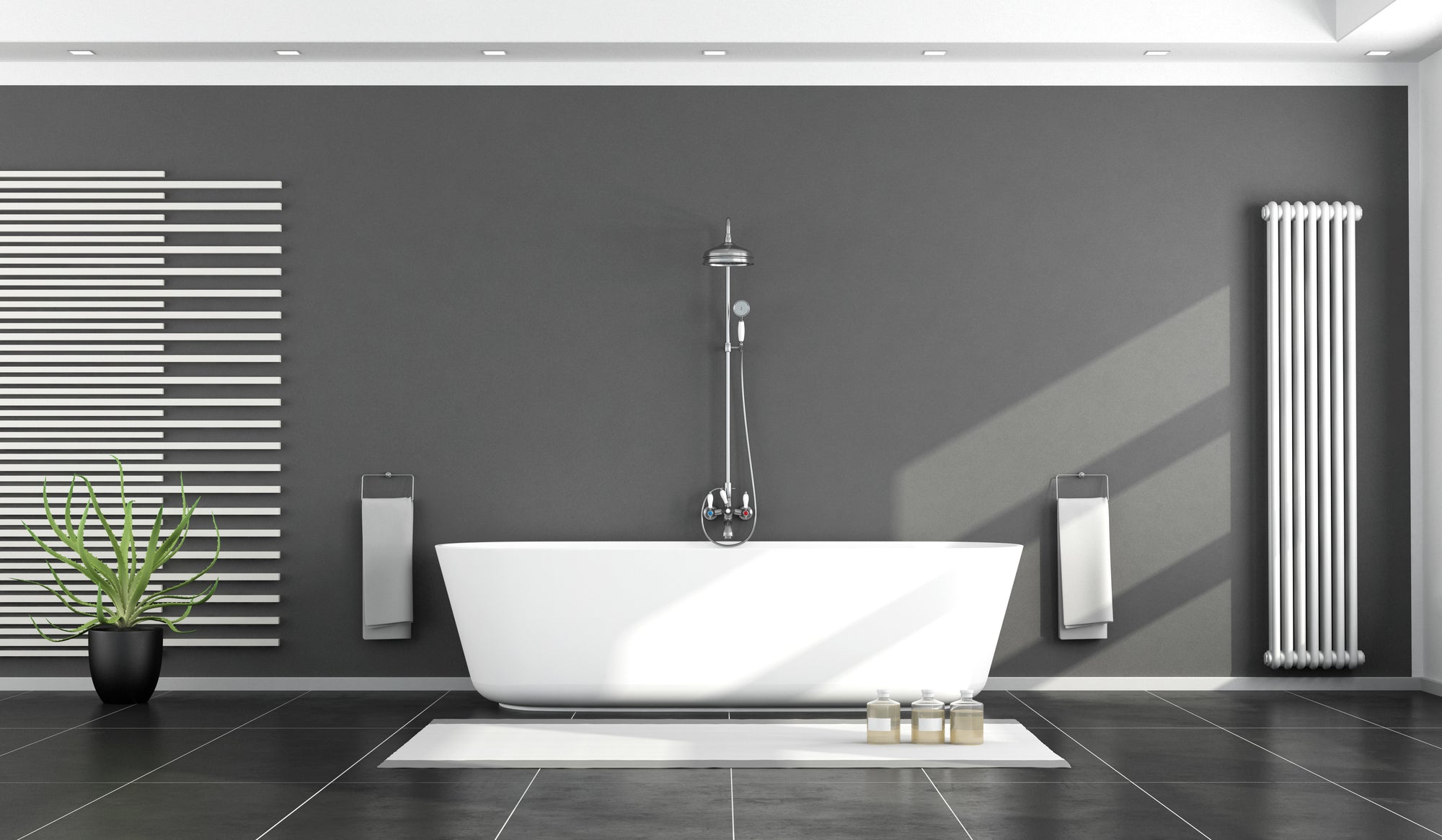
Let Us Help You Today
As you can see, selecting a pump can be complex. The easiest way to find your ideal pump is to speak to our support team. Use the chat button below or use our contact form today.
Frequently Asked Questions
Can’t find the answer you’re looking for? Reach out to our customer support team.
- Why Do I Need a Shower Pump?
-
Whilst not always the answer, shower pumps are a great solution for solving low water pressure in your home. They can fix low water pressure, temperature fluctuations and other situations such as when you have insufficient flow to support an electric shower or combination boiler.
- How Do Shower Pumps Work?
-
Shower Pumps work by increasing the water pressure in your home. Depending on the pump, you can start with very low flow or non-existent flow and experience water pressure in excess of 3.5 Bar.
- How Do I Know If I Need a Positive or Negative Shower Pump?
-
In this article we discuss the theory of positive or negative head, however generally speaking if your flow rate is less than 2 litres of water per minute (L/min), you should consider a negative head shower pump. You can find this out by timing how much water comes out of your tap using a measuring jug and a timer.